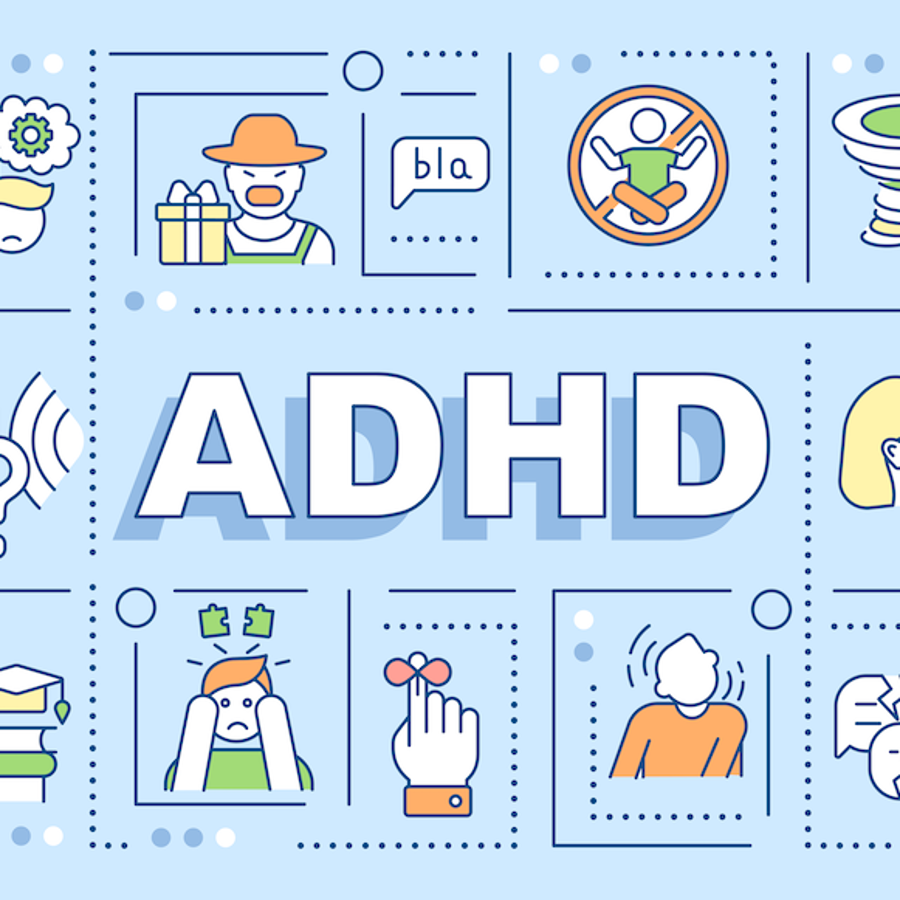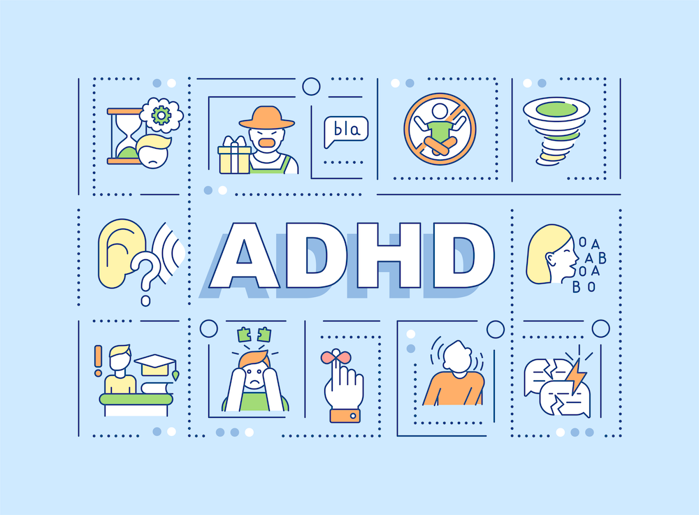
Is ADHD genetic?

- Related Topics:
- Neurodiversity,
- Complex traits,
- Environmental influence
Rosie from Louisiana asks:
"Is ADHD genetic?"
I love this question, though the answer is very much like ADHD itself: incredibly diverse and complex! So before we talk about any of the genetics behind it, let’s start by defining what exactly ADHD is.
What is ADHD?
ADHD, or Attention Deficit Hyperactivity Disorder, is a condition that affects a person’s ability to focus. How people experience ADHD can vary a lot from person to person. While ADHD is generally described as a condition that may include trouble getting or staying focused, difficulty with time management, and feeling frequently restless or anxious, that may not describe the experiences of all people with ADHD. Everyone is distinct in their own unique ways, and our brains are no different! In fact, there is a term to describe this exact concept: neurodiversity.
ADHD is a chronic condition that can affect a person anywhere from just a few months to their entire life. How much and in what ways ADHD affects a person can also fluctuate, meaning that it can change from day to day or year to year.
So as I proceed to explain some of what we currently know about the genetics behind ADHD, I’d like you to keep in mind that ADHD is just how we’ve chosen to describe a specific way people’s brains can work!
To finally get at your question… is ADHD genetic? The short answer is both yes and no, depending on what exactly you mean by “genetic”. I’ll break the answer up into two parts, starting with the “yes”!

Yes! It’s (partially) genetic!
If by “genetic” you mean that genes are involved, then yes ADHD is absolutely genetic! Over many years of research, scientists have learned more and more about our brains and how genes play a role in how they work. Though, just saying that “genes are involved” is a bit of an oversimplification.
There are dozens of genes that we know are associated with ADHD, and there are likely many more we have yet to discover! Most of the genes we’ve identified are involved in how our brains develop and function, and scientists believe that it is the combination of these genes working (or not working) together that contributes to a person’s experience with ADHD.
Still, it isn’t all about genes! We know that many other factors, ranging from the place someone grew up to the day-to-day decisions they make as an adult can play a role in how a person may experience ADHD. These “non-genetic” aspects are called environmental factors, and are what makes studying ADHD so difficult.

No, it’s not (completely) genetic.
Often when a person asks: “is ___ genetic?”, what they’re actually asking is: “is ___ inherited and can I get tested for it”? Inherited meaning something that’s passed down from parents to their children, and tested meaning a lab takes a look at your gene(s) and tells you if you have a condition or not.
While there are lots of amazing things we can learn from genetic testing, determining whether or not a person has ADHD isn’t one of them. There are a few reasons for this, all of which should sound familiar! We do not fully understand the complex interactions between the genes that we know are associated with ADHD, and we haven’t yet identified all the genes that are involved.
Lastly, there is no blood or saliva test that can take into account the many environmental factors that play a very significant role in a person’s experience with ADHD. So, with all that in mind, I want to make something clear:
There is currently no genetic test that can accurately determine if someone has (or will develop) ADHD.
While there are numerous websites offering genetic testing that can “estimate the likelihood” of a person having ADHD, the results of these tests should not be used to make medical decisions. The best (and only) accurate way to get an ADHD diagnosis is to see a mental health professional, like a psychologist or psychiatrist!

But wait, there’s more!
While there isn’t a genetic test for ADHD, we can still use our knowledge of genetics to understand it better!
I mentioned the term “inherited” earlier, the idea that genes are passed down from parents to their children. This “passing down” of genes is why genetic conditions tend to “run in the family”. With ADHD it’s a bit more complex, again due to the fact that there are multiple genes and environmental factors involved. Still, if we know someone has a family history of ADHD, then we can make some reasonably accurate estimates on the chances that they will have ADHD too!
If you’re interested in learning more about ADHD inheritance and family history estimates, I encourage you to check out this previous Ask a Geneticist article!
There is also one slight exception to my “there is no genetic test for ADHD” statement. There are a number of other genetic conditions, like Tuberous Sclerosis Complex (TSC) or Fragile X Syndrome, where it is very common to also have ADHD. With these heavily-researched and well-understood genetic conditions, the specific gene(s) that cause the conditions have been identified.
Since we know what causes these conditions genetically, we can accurately test for and diagnose them! Now that certainly doesn’t mean those tests can diagnose ADHD, but just like family history or inheritance, they are just another piece of this very complicated puzzle.
Read More:
- Other AAG Article: What are the chances that my child will have ADHD?
- Great websites to check out for more information & resources regarding ADHD

Author: Ben Esmaili
When this answer was published in 2023, Ben was a M.S. candidate in the Stanford University School of Medicine, studying Human Genetics and Genetic Counseling. Ben wrote this answer while participating in the Stanford at The Tech program.
 Skip Navigation
Skip Navigation
